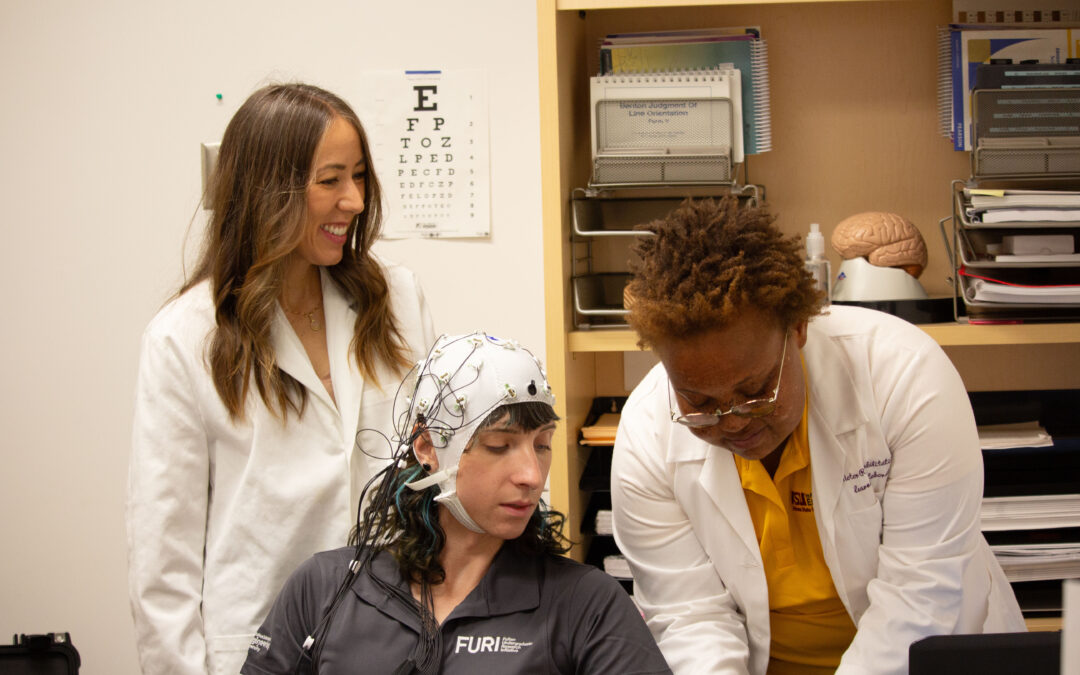Project title: Towards an equitable alternative for early Alzheimer’s disease screening
Sydney Schaefer has received nearly $250,000 grant from the Alzheimer’s Association to advance her research aimed at reducing diagnostic bias in Alzheimer’s disease. This funding will support the development and testing of a culturally neutral, cost-effective motor test designed to ensure equitable early detection for Latino older adults.
Alexi Reed, a second year PhD student in biomedical engineering will assist in compiling and analyzing merged data, visualizing data, preparing preliminary data for future grant submissions, and contributing to peer-reviewed scientific publications from this work. Working with big data will provide Alexi with relevant analytic skills, and she will be able to apply her outstanding communication skills during the dissemination phase of the project. The innovative research is by developed an alternative to traditional cognitive testing for early Alzheimer’s disease screening that can be paired with blood-based biomarkers, or potentially used on its own while being more equitable across ethnicities.
Summary: Latino older adults are 1.5 times more likely to develop Alzheimer’s disease than their white non-Hispanic counterparts, yet they are diagnosed much later, limiting access to early interventions. Blood-based biomarkers offer a non-invasive solution for earlier detection, but they should be used alongside brief clinical tests, as advised by the Alzheimer’s Association. However, current cognitive tests are not equitable across ethnicities, often showing bias against Latino patients.
To address this, Sydney Schaefer has developed a novel motor test, validated in various studies, that is culturally neutral and cost-effective. This test, unlike traditional cognitive screens, shows promise in being equitable across different ethnic groups. The project aims to integrate this motor test into the MindCrowd cohort to assess its effectiveness and reduce diagnostic bias against Latino older adults.
